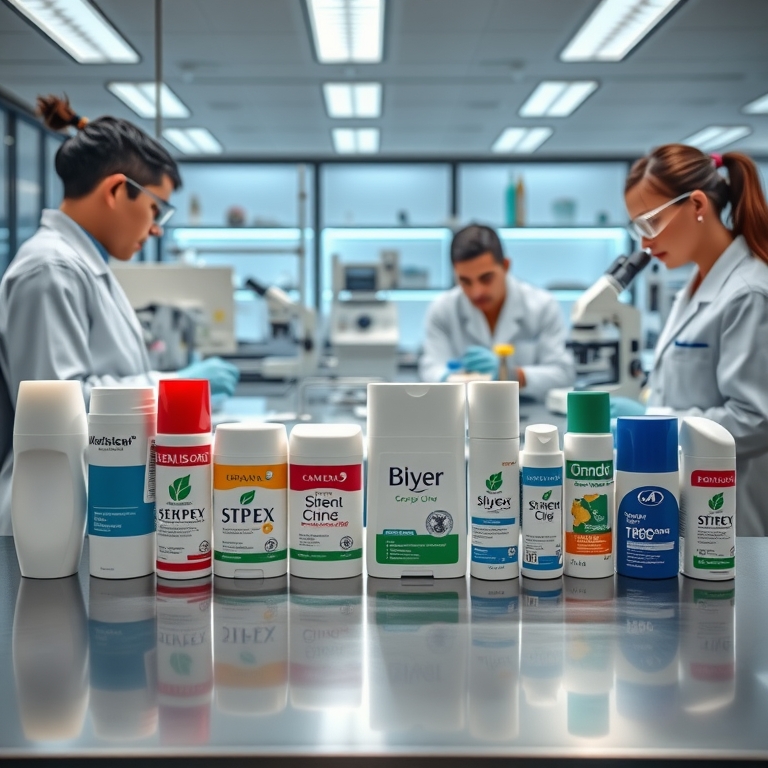In an unexpected development that has sent ripples through the personal care industry, the U.S. Food and Drug Administration (FDA) has announced the recall of multiple deodorant brands due to concerns over potential contamination. This decisive action underscores the FDA’s commitment to consumer safety and highlights the ongoing challenges manufacturers face in maintaining stringent quality controls in an increasingly complex supply chain.
The recall, which was announced earlier this week, pertains to a range of popular deodorant products found in many American households. The FDA’s decision came after routine testing identified the presence of benzene, a chemical compound that is classified as a human carcinogen. While benzene is not intentionally added to deodorants or other personal care products, it can inadvertently find its way into these products through various means during the manufacturing process.
Benzene exposure is associated with an increased risk of cancer, particularly leukemia, and other blood disorders. Given these significant health risks, the presence of benzene in consumer products, especially those applied directly to the skin, is a matter of grave concern. The FDA’s swift action in recalling these products is a testament to its vigilance and dedication to protecting public health.
The affected brands are well-known and widely used, making this recall particularly impactful. Consumers have been advised to immediately discontinue the use of the recalled products and seek refunds or replacements from the manufacturers. Retailers have also been instructed to remove the affected stock from their shelves to prevent further sales.
The news of the recall has prompted a wave of responses from the companies involved. Most have expressed their commitment to addressing the issue and have vowed to conduct thorough investigations to determine how the contamination occurred. Several companies have already initiated independent audits of their manufacturing processes and supply chains to identify potential vulnerabilities and prevent future occurrences.
This incident serves as a stark reminder of the complexities involved in modern manufacturing and the importance of rigorous quality assurance protocols. In an era where supply chains span the globe and involve numerous third-party suppliers, maintaining control over every aspect of production is a daunting task. Even with the most robust safety measures in place, the possibility of contamination remains a persistent challenge.
For the affected companies, the recall represents not only a logistical challenge but also a potential blow to consumer trust and brand reputation. In the highly competitive personal care market, where brand loyalty is fiercely contested, maintaining consumer confidence is crucial. Companies must now navigate the delicate task of reassuring their customers while simultaneously rectifying the issues that led to the recall.
In light of this recall, industry experts are urging companies to adopt even more stringent safety protocols and to leverage technology to improve traceability and transparency within their supply chains. Advances in blockchain technology, for example, offer promising opportunities for enhancing supply chain visibility and ensuring that every component of a product can be accurately traced back to its origin. Such innovations could play a critical role in preventing similar incidents in the future.
The FDA’s recall has also reignited discussions around regulatory standards and the need for consistent global safety benchmarks. As consumer goods increasingly traverse international markets, the harmonization of safety standards across different countries becomes ever more pressing. Ensuring that products meet the highest safety criteria, regardless of where they are manufactured or sold, is essential to safeguarding public health and maintaining consumer trust.
For consumers, this recall serves as a reminder of the importance of being informed about the products they use daily. While regulatory bodies like the FDA play a crucial role in ensuring product safety, individuals are encouraged to stay vigilant and report any adverse reactions or concerns to the appropriate authorities. Consumer awareness and engagement are vital components of a robust public health ecosystem.
As the investigation into this recall unfolds, the industry will be watching closely. The lessons learned from this incident will undoubtedly shape future practices and regulations, contributing to the ongoing evolution of safety standards in the personal care sector. In the meantime, the FDA’s decisive action serves as a powerful reminder of its role as a guardian of public health and a proactive force in the prevention of potential health hazards.
In conclusion, the FDA’s recall of multiple deodorant brands over contaminant concerns has brought the issue of product safety to the forefront of public discourse. It underscores the inherent challenges of modern manufacturing and the need for continuous vigilance and innovation in quality assurance practices. As the affected companies work to address the situation and restore consumer confidence, the broader industry must reflect on the lessons learned and strive to uphold the highest standards of safety and integrity. The coming months will be critical in determining how the industry responds to this challenge and what measures will be put in place to prevent similar incidents in the future.

Leave a Reply